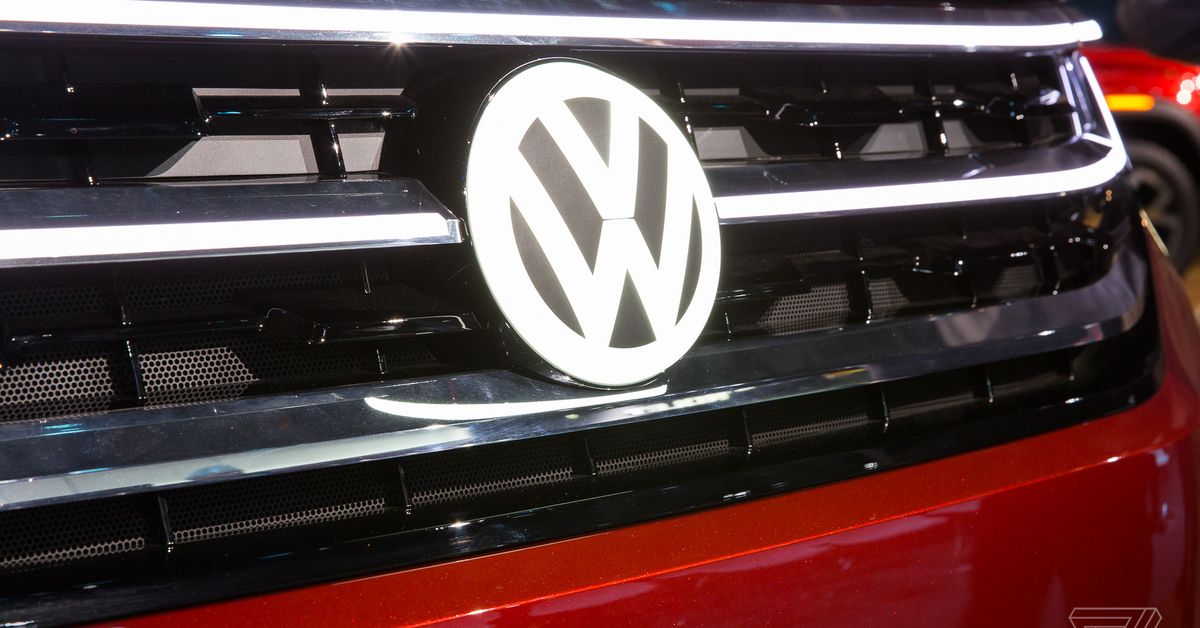
Volkswagen is stepping up its efforts to develop fully driverless cars by spinning off its own startup that it claims will be among the “best-funded” in the world. Volkswagen Autonomy, or VWAT, plans to bring robot taxis and cargo vans to three continents by 2025, according to the Financial Times.
The news comes less than three months after VW announced that it would invest $2.6 billion in Argo AI, the Pittsburgh-based autonomous vehicle software startup that is also backed by VW rival Ford. Amid an uncertain future, the two global automakers have said they would join forces to build pickup trucks and commercial vehicles as well as electric cars and AVs.
Now, VW is taking that a step further in creating its own subsidiary focused on the development and deployment of so-called Level 4 autonomous vehicles, which are cars that require no human interaction but only in a defined setting. The automaker will absorb Audi’s Autonomous Intelligent Driving unit into what will become Argo AI’s European headquarters in Munich, according to FT.
The startup’s first project will be self-driving cargo and passenger versions of VW’s upcoming minibus, the I.D. Buzz, which was developed in conjunction with the Volkswagen Commercial Vehicles brand. The automaker has shown off numerous autonomous concept vehicles at auto shows over the years, but the I.D. Buzz seems to be the one that generated the most (you guessed it) buzz.
VWAT will be run by Alexander Hitzinger, who has been running the company’s commercial vehicles division as well as its self-driving car and mobility-as-a-service programs since January 2019. Prior to that, Hitzinger was technical lead at Porsche’s LMP1 prototype racing program. He’s also worked in Formula 1 with Red Bull Racing. And he used to work at Apple on its secretive Project Titan self-driving car program. VWAT “will be in “the world’s best-funded start-up,” Hitzinger told FT.
Like most of the auto industry, VW is clearly lagging behind its rivals in the autonomous vehicle space, such as Alphabet’s Waymo and GM’s Cruise. The German automaker is betting big money that it can catch up: in addition to the $2.6 billion it sunk into Argo AI, VW said it would spend $91 billion to profitably mass-produce electric vehicles — a feat no carmaker has come close to achieving.
A month ago, VW severed a partnership with Aurora Innovation, the autonomy startup founded by former Google self-driving head Chris Urmson. Argo was co-founded by Bryan Salesky, another former member of the Google self-driving team. He was also on the same team as Urmson in the 2007 DARPA autonomous vehicle challenge, which is seen as a watershed moment in the pursuit of self-driving cars.
Ford dumped $1 billion into Argo in 2017, and it has worked closely with the startup ever since. The Detroit-based automaker has said it would deploy self-driving cars “at scale” by 2020.
VW has dabbled in the self-driving space, but this appears to be the automaker’s most serious effort to date. A year ago, Volkswagen said it would work with Mobileye, the computer vision firm owned by Intel, to launch a commercial self-driving ride-hailing service in Israel in 2019.
The VW news comes on the heels of a run of self-driving news from major car and tech companies. Hyundai is launching a robot taxi service in Irvine, California, in November. Toyota plans to offer one in Tokyo to coincide with the 2020 Summer Olympics. Ford has said it will launch an autonomous ride-hailing service in the US “at scale” starting in 2020. GM recently pushed back the launch date of its taxi service to beyond 2019. AV startup Zoox will offer rides in its AVs in Las Vegas. Didi Chuxing is preparing to do the same in China starting in 2021. And Waymo, which is seen by most as the leader in the space, is now starting to offer limited trips in its fully driverless minivans in the suburbs of Phoenix, Arizona.
https://www.theverge.com/2019/10/28/20936114/vw-self-driving-startup-spinoff-argo-announce

